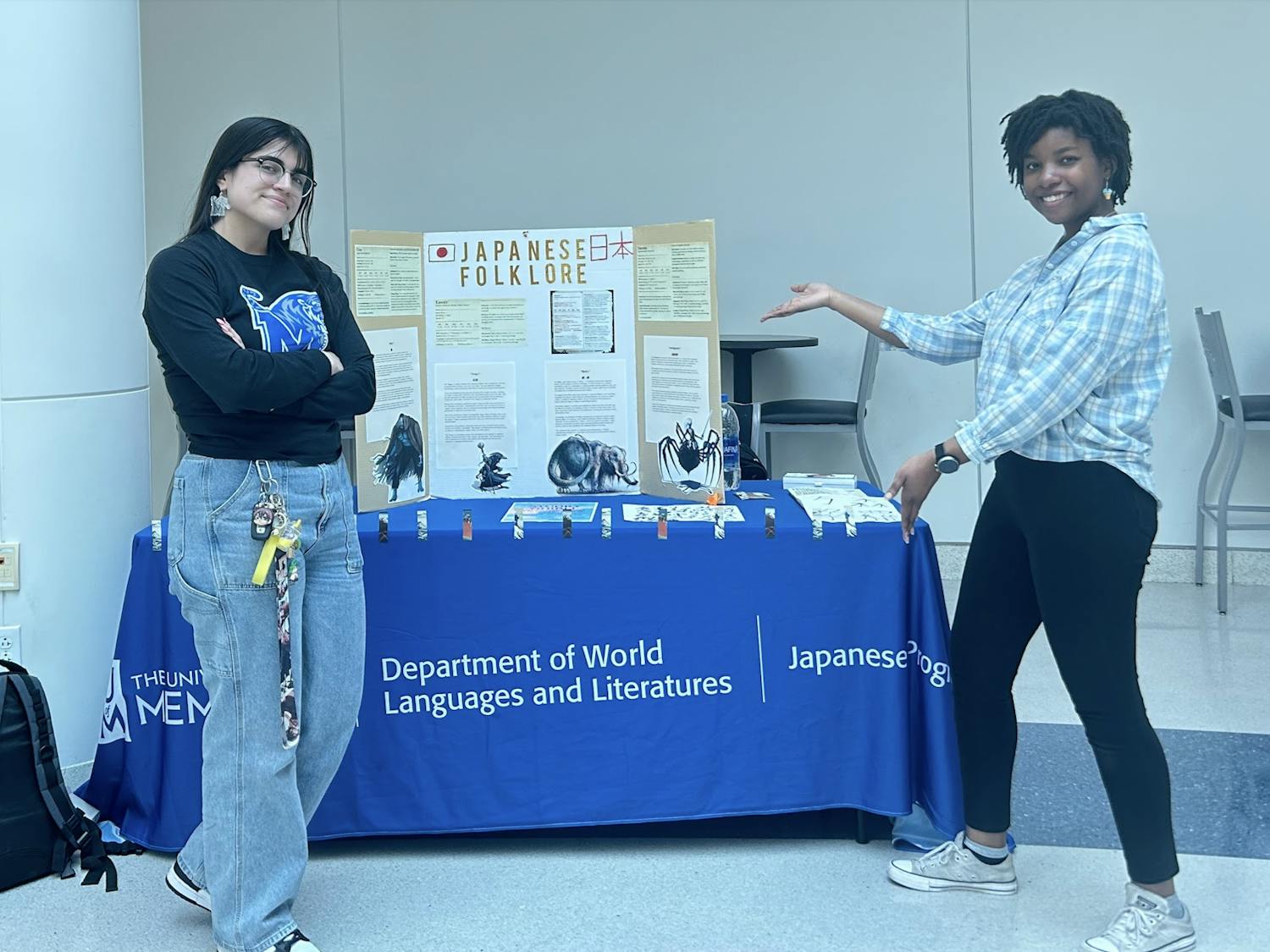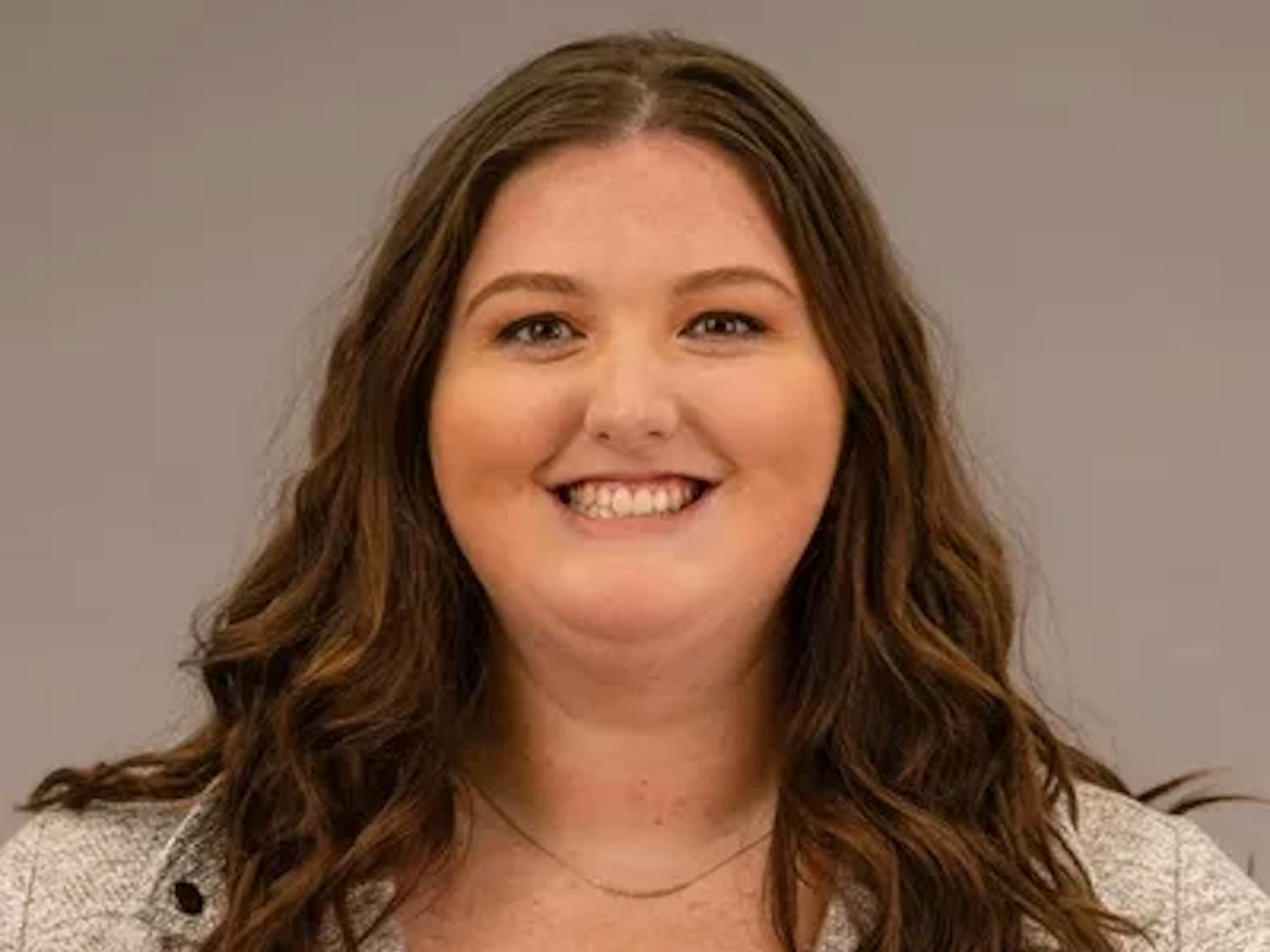The University of Memphis partnered with the Sickle Cell Foundation of Tennessee to increase sensitivity and awareness surrounding Sickle Cell Disease (SCD), a rare but debilitating genetic blood virus that primarily affects ethnic groups as 8% of African Americans inherit the disorder.
The department of communication and film, alongside the School of Public Health, organized an outdoor fair with artwork and information tables. Following the fair, leading advocates from around the community introduced a student-panel of ‘sickle cell disease warriors’ who shared their emotional experiences during a luncheon in the UC Beale Room Oct. 1. Medical and nursing students from local campuses, including Southwest Tennessee Community College, were also in attendance.
Sickle Cell Awareness Day at the UofM started two years ago after Dr. Amanda Young, a professor in the communications department, taught a graduate seminar researching communication issues surrounding SCD.
“Students decided they wanted to do something, so I enlisted St. Jude and Public Health. And here we are,” Young said.
Yvonne Carroll, director of patient services at St. Jude Children’s Research hospital, said St. Jude currently treats 900 adolescent SCD patients. Carroll said bone-marrow transplants cure the disease, but finding a match is rare (usually requiring siblings) and the cost of the procedure is unaffordable for many.
Carroll told the medical and nursing students in attendance that if they continue their professional careers locally, they will navigate the crippling effects of this disease daily.
“If you stay in Memphis, you will treat SCD,” Carrol said. “Regardless of your field of practice.”
Reginald French, president and chief executive officer of the Sickle Cell Foundation of Tennessee, said the rare disease had not been taken seriously in the past. French said more cutting-edge treatments are on the way next year, but growing the public discourse and securing resources is of utmost importance.
“We need more partnerships,” French said. “We’re very proud of our partnership with the University of Memphis, but we need more.”
Many panelists Tuesday said their biggest need was receiving adequate treatment after transitioning from adolescence at St. Jude to adulthood.
“St. Jude does a wonderful job with the adolescent population, but there is a huge adult population in need of our support as a community,” French said.
SCD warrior Lindsey Proctor Sanders served as a panelist. The junior hospitality major said she was pleased with the turnout, but the school and community need to do more to promote sensitivity and proper treatment for SCD warriors.
“We need more events and more advertising,” Sanders said.
Health department graduate-assistant Ashley Cooper served on the sickle cell awareness planning committee. Cooper said Memphis has the second-highest SCD population in the country with adult cases numbering in the thousands.
Cooper also said that because local medical personnel report numerous drug-seeking complaints citing SCD, legitimate non-drug seeking patients may sometimes struggle to receive basic pain treatment such as fluids or oxygen.
“Sadly, some patients—when they’re feeling their worst— have to put on a coat and tie for treatment in order to be taken seriously,” Cooper said.



